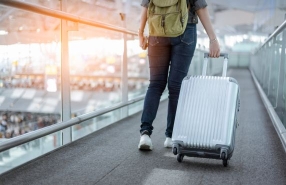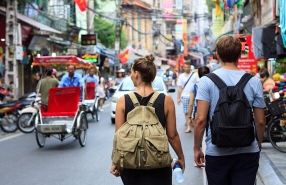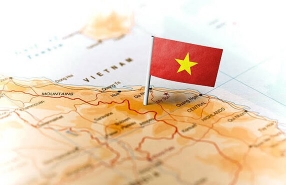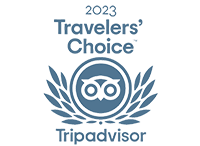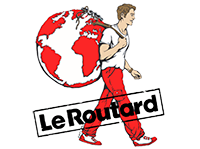Are Travel Vaccines Required For Vietnam?

When planning a trip to new destinations, health considerations such as travel vaccines for Vietnam are crucial to ensure a smooth journey. Are there mandatory travel shots for entering Vietnam? What are the common diseases in Vietnam that travelers should be aware of, and what are the treatments for malaria? Having information about health and medical care will help you, along with your friends or family, to have a memorable vacation. This article will discuss all the aspects related to Vietnam travel immunizations for international tourists.
Table of Contents
I. Are there mandatory vaccines for entering Vietnam?
Vietnam does not require any mandatory travel vaccines for travelers coming from most countries. However, if you are arriving from a region where yellow fever is present, such as countries in Africa and Latin America, a certificate of vaccination against this disease will be necessary.
The tropical climate of Vietnam, which is hot and humid, can promote the spread of certain diseases, including dengue, malaria, and hepatitis A and B. It is recommended to take precautions to protect yourself, such as obtaining travel shots for Vietnam, using mosquito repellent, and practicing good personal hygiene.

II. What vaccines are recommended for traveling to Vietnam?
When planning a trip to Vietnam, it is advisable to get vaccinated against several diseases to ensure effective protection. Here are the recommended travel vaccines for Vietnam:
1. Hepatitis A: Transmitted through contaminated food or water, this vaccination is recommended for all travelers.
2. Hepatitis B: Especially recommended for longer stays or if you may be exposed to blood or bodily fluids.
3. Typhoid: Essential for those who will consume food or drinks that are not prepared by themselves.
4. Rabies: Recommended for travelers, especially children, who will be in contact with animals, particularly during rural stays.
5. Japanese Encephalitis: For travelers engaging in outdoor activities, prolonged stays in rural areas, or during the rainy season.
6. Tetanus, Diphtheria, and Polio (TDAP): Ensure these basic vaccinations are up to date.
7. Yellow Fever: Required only if arriving from a country where the disease is present (Africa, South America and Central America).
8. Measles, Mumps, and Rubella (MMR): Crucial to ensure these vaccines are up to date due to potential outbreaks of these infectious diseases.
9. Chickenpox: Recommended for those who have never had chickenpox or are not immunized.
10. Pneumonia: Especially recommended for the elderly, young children, and those with underlying health conditions.
11. Flu: Advised particularly during flu season, especially for at-risk groups like children, the elderly, and those with chronic conditions.
Vietnam travel immunizations contribute to comprehensive protection against various potential diseases during your stay in the country.
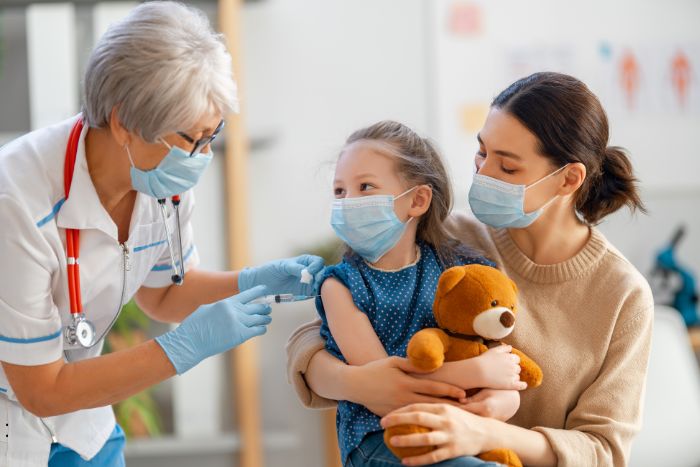
III. What are the common diseases in Vietnam?
1. Dengue: Symptoms include high fever, muscle pain, and rash. Treatment involves consulting a doctor, resting, staying hydrated, and taking pain relievers. Prevent by avoiding mosquito bites during the day.
2. Malaria: Treated with antimalarial medications prescribed by a doctor. Prevention involves using mosquito protection measures.
3. Diarrhea: Often caused by bacterial or viral infections through food, such as improper hand washing before meals. It is treated with oral rehydration solutions and, if needed, antibiotics. Prevent by maintaining good food hygiene and drinking clean water.
4. Measles: A highly contagious viral infection transmitted through aerosols, characterized by high fever, fatigue, conjunctivitis, and a red rash. Vaccination is recommended for travelers to epidemic areas, with the vaccine given from 12 months of age providing lifelong protection for those who have had the disease.
5. Avian Influenza: Primarily affecting poultry, it can also infect humans through contact with sick animals. When visiting rural areas, consume only well-cooked poultry products and wash hands frequently to reduce risks.
For all these diseases, it is crucial to seek medical advice promptly for accurate diagnosis and appropriate treatment.
IV. Is COVID-19 vaccination required to enter Vietnam?
Currently, COVID-19 vaccination is not mandatory for entry into Vietnam. However, it is always advisable to have the necessary travel shots for Vietnam and follow your doctor’s health advice before departure. This will help you plan a suitable itinerary for your stay and activities while allowing you to fully enjoy this beautiful country.
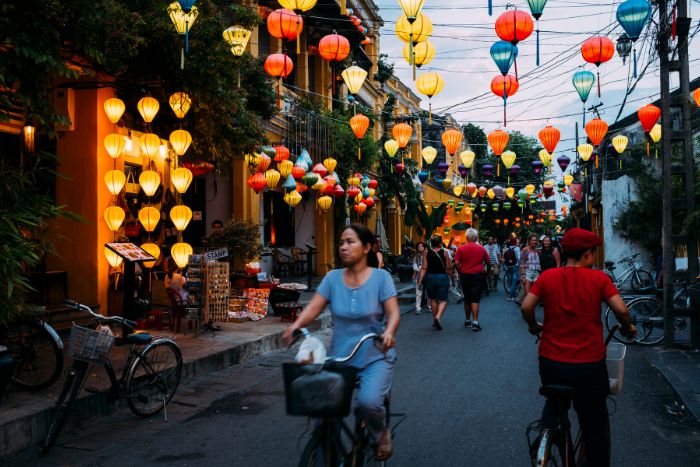
V. Health tips for traveling to Vietnam
1. Before your trip to Vietnam:
- Basic travel vaccines for Vietnam: Ensure your vaccinations are up to date for common diseases in the country.
- Shots required for Vietnam: Consider vaccinations for hepatitis A and B, and typhoid. For extended stays or rural areas, vaccines for rabies and Japanese encephalitis are advised.
- Planning: Prepare for extreme weather conditions and check health advice for specific vaccinations based on your itinerary.
2. During your trip to Vietnam:
- Food hygiene: Avoid tap water in Vietnam and choose well-cooked foods to prevent foodborne illnesses. Avoid wild meats and thoroughly wash vegetables.
- Mosquito protection: Use mosquito repellent, wear covering clothing, and sleep under a mosquito net to avoid dengue and malaria.
- Hydration and precautions: Stay hydrated and avoid intense sun exposure to prevent dehydration and heatstroke.
3. After your trip to Vietnam: Consult a doctor if you experience symptoms such as fever, headache, joint pain, or persistent diarrhea, and inform them of your trip to Vietnam.

By following these guidelines, you will reduce health risks in Vietnam, and inoculations for Vietnam are always recommended. If you have questions about your upcoming trip, please contact Autour Asia, your travel agency in Vietnam. Our advisors will help you design a detailed itinerary based on your needs to ensure a safe and amazing stay in Southeast Asia.
> Travel insurance Vietnam
> Vietnam travel 2 weeks
> Vietnam itinerary 10 days
> Vietnam packages tours
To handle Vietnam's weather, such as heat and humidity, drink plenty of water and avoid outdoor activities between 10 a.m. and 4 p.m., especially in summer. You can also refer to Clothes in Vietnam for suitable outfit, such as long-sleeve shirts to protect against the sun and mosquitoes during your trip.
If you have a fever, headaches, joint pain, or persistent diarrhea, see a doctor immediately for prompt treatment about your sick in Vietnam. Contact your hotel’s reception, your travel agency, or call emergency services at 115.
Related travel guide
Other similar articles
CUSTOMIZABLE BY LOCAL EXPERTS
Personalized trip at the original price!
REFUND GUARANTEE
We believe in our work and promise to give you money back.
GOOD PRICE / QUALITY
95% satisfied more than expected!
24/7 LOCAL SUPPORT
We are always available online to provide assistance at any time.
Most read articles
Autour Asia is highly recommended on
Embracing the mission of "Satisfied more than expected" and providing authentic experiences, we have received numerous recommendations on reputable travel forums:












